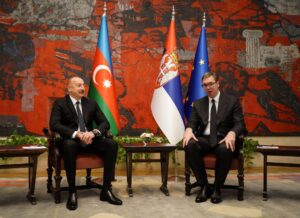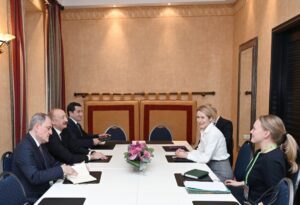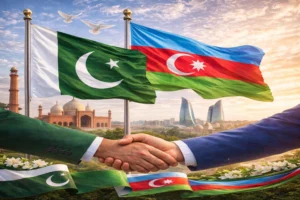Azerbaijan Prioritizes Reconstruction of Liberated Territories, Allocating Significant Resources for Development

Baku, The Gulf Observer: Following the restoration of its sovereignty, Azerbaijan has embarked on a major reconstruction and restoration initiative in the territories liberated from occupation. Under the direct guidance of the government, these efforts have been elevated to a national priority, with strategic utilization of resources to restore these long-occupied regions. The focus is currently on building a modern economy in Garabagh and Eastern Zangazur, with construction projects following the most advanced standards.
To ensure the effective use of financial resources, Azerbaijan has allocated substantial funding for these projects. By the end of this year, 19 billion manats will have been spent on reconstruction efforts. In 2024 alone, 4.85 billion manats were allocated from the state budget for restoration and rebuilding in the liberated areas. According to the Ministry of Finance, 64.6 percent of these allocated funds have already been utilized.
During the first nine months of this year, the government allocated 3.14 billion manats specifically for reconstruction and restoration, with 1.73 billion manats directed towards state capital investment projects. This represents 61.4 percent of the annual budget for this purpose, an 8.8 percent increase from the previous year.
A significant portion of these funds has been directed toward infrastructure projects, which have reached impressive levels. To date, 3,000 kilometers of highways have been constructed, alongside plans for 45 tunnels totaling 70 kilometers in length. The construction of 450 bridges is also planned, and two international airports have already been commissioned.
In addition to infrastructure, significant investments are being made in facilitating the return of displaced persons under the “Great Return” Program, approved by President Ilham Aliyev on November 16, 2022. The program is progressing smoothly, and the first stage is expected to be completed by the end of 2026, with 140,000 displaced people returning to their ancestral homes. Social infrastructure such as hospitals, schools, and sports facilities will also be developed alongside this resettlement.
President Aliyev, in his remarks at a swearing-in ceremony on February 14, emphasized the magnitude of the reconstruction work. More than 130 tunnels and bridges, including 40 tunnels and 90 bridges, are currently under construction. The entire electricity grid has been rebuilt, new railways are under construction, and two international airports are operational, with a third planned for Lachin. Housing projects adhering to modern urban planning standards are also underway, while the historical character of cities is being preserved.
Azerbaijan’s ongoing socio-economic policies have led to a diversified economy. In the first nine months of 2024, the country’s gross domestic product (GDP) reached 92.83 billion manats, representing a 4.7 percent increase from the previous year. Growth in the oil and gas sector stood at 0.9 percent, while the non-oil and gas sector expanded by 7.1 percent. This economic progress demonstrates the country’s resilience and commitment to growth.
In terms of sectoral contributions to the GDP, industry accounted for 37.1 percent, trade and vehicle repair made up 9.6 percent, and transport and warehousing contributed 7 percent. Other notable sectors included agriculture (6.4 percent), construction (6.3 percent), and tourism (2.4 percent). The GDP per capita for the period stood at 9,103 manats.
Azerbaijan’s comprehensive reconstruction and restoration agenda is advancing with significant financial commitments. Infrastructure development, particularly roads, bridges, and social facilities, is a key component, along with the successful implementation of the “Great Return” Program to resettle displaced citizens. The country’s economic growth, alongside its modernized infrastructure, is set to deliver long-term benefits to its people and support national prosperity.


